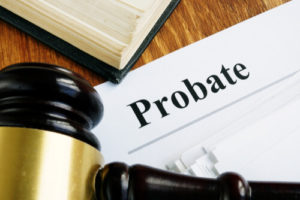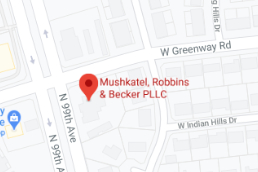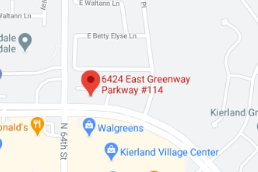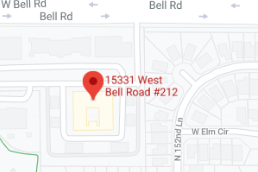
If a loved one or a friend asked to manage her estate upon her death, you might be familiar with the term probate. However, you may not know what that process entails: this is why it is critical to have a probate lawyer who can help you to understand the process and guide you through it.
The experienced Glendale, AZ attorneys of the law firm of Mushkatel, Robbins & Becker, PLLC can offer experienced legal assistance to help you address the issues that may arise during the probate process and manage the settlement of the decedent’s estate and distribution of assets to beneficiaries and heirs. To learn more about how we can help you, call or reach us online today.
What Is Probate in Glendale, Arizona?
Probate is a court process that grants an executor or administrator of an estate the power to act on behalf of the deceased person. It is also the process by which a deceased’s estate is distributed after his or her death. A decedent’s property is distributed according to the terms of the person’s will, or in the absence of a will, according to Arizona’s intestacy laws. Please note, that in addition to administering probate cases, our firm also handles wrongful death cases and many different types of personal injury cases.
During the probate process, the court will approve the appointment of a personal representative for the deceased person’s estate, to administer their assets, pay claims, and distribute the remaining assets to heirs or beneficiaries. Interested parties (who may include the deceased’s family members, persons or entities named in their will, or persons or entities with an interest in the assets under probate), may be entitled to lodge a challenge to various aspects of the probate process, including:
- Admitting a will to probate
- Terms of the will
- Appointment of an executor or administrator
- Distribution of estate assets
- The executor’s accounting
Arizona has two basic forms of probate: informal, and formal. For a majority of estates, an informal process is sufficient. However, if there are any disputes between parties, or if certain statutory requirements are met, a formal process is required. The Court supervises the administration of an estate in a formal probate, and there is more paperwork and hearings involved.
Can Probate Be Avoided in Arizona?
Depending on the circumstances, it may be possible to avoid a probate proceeding for an estate. If the estate is comprised of assets valued at $75,000 or below (or $100,000 if real estate is involved), the estate may be eligible for an informal administration through the execution, filing, and/or recording of affidavits.
It may also be possible to avoid probate through alternative estate planning which involves the following tools:
- Revocable living trust – With a revocable living trust, you can avoid probate of your estate because a trustee will hold title to your property. While you can enjoy the benefit of your property during your life as a beneficiary, you can direct the trustee to distribute the trust assets upon your death to whomever you wish to receive your property. However, while the assets in a revocable living trust will not be a part of the probate estate, they will still be a part of the estate for federal estate tax purposes, if the assets rise to that level.
- Irrevocable trust – This trust will transfer your assets out of your estate, and it cannot be altered after it is executed. The assets that you put into an irrevocable trust are no longer considered to be part of your taxable estate. This type of transfer has income tax consequences and must be undertaken in conjunction with both legal and accounting counsel.
- Pay/transfer-on-death accounts – Bank accounts, brokerage accounts, and retirement accounts can be converted into pay/transfer-on-death accounts so that the account can be transferred or paid out to your designated beneficiary without having to go through probate.
- Joint ownership of real estate – Property titled in this manner will pass to the joint owners upon your death without going through probate. In order for the property to pass to a survivor upon death, it must be held with rights of survivorship: in other words, as joint tenants with rights of survivorship, or community property with rights of survivorship.
- Beneficiary Deeds – Real estate can also be passed upon your death to a named beneficiary, such that you retain all ownership during your life and the property only passes to a named person or persons upon your death.
- Inter vivos gifts – You can also give away your assets during your life, with many gifts not subject to federal gift taxes. If you don’t own property at your death, there is no need for probate.

What Are the Steps Involved in the Probate Process?
The steps of a formal probate process in Arizona include:
- Appointment of personal representative – If you are named a personal representative in a deceased’s will, or if you are a family member or friend of the decedent, you must apply to the probate court to be appointed as the personal representative in order to have legal authority for the estate. The process involves filing an application, a death certificate, and the original will. Also, as part of the process, you will notify surviving family members and beneficiaries named in the will of the upcoming probate process.
- Probate hearing – The probate court will schedule a hearing to give interested parties the opportunity to object to the appointment of the administrator or executor. If you are appointed to be the administrator or executor, the probate court may require you to post a bond or carry insurance to cover any monetary damages if, as an administrator or executor, you cause losses to the estate.
- Managing the estate – As the administrator or executor, you will gather the decedent’s assets and open a bank account in the name of the estate to pay creditors. You will also need to publish notice to all possible creditors, and provide direct notice to known creditors, gather any claims, and determine if and how they should be paid. Appraisals may be required for both real estate and personal property. As necessary, estate assets may be sold, sometimes with court approval, to pay creditor claims.
- Close the estate and distribute property – Once the time for creditor claims has expired, you will file an accounting with the court detailing the actions taken. If approved by the court, you will then distribute the estate assets to beneficiaries and heirs according to the will or the intestacy statutes.
Helpful Pages:
- Glendale divorce lawyer
- Glendale family law lawyer
- Glendale child custody lawyer
- Glendale real estate lawyer
Why Hire a Probate Lawyer in Glendale, Arizona?
Although it is possible to handle probate on your own, you will benefit from hiring a probate lawyer to help you if you are named as an administrator or executor of someone’s estate. Some of the benefits of working with a probate lawyer include:
- Removing the burden of paperwork – Administering an estate often requires a lot of complicated legal paperwork. Completing all this paperwork can be especially difficult while you are grieving the loss of a loved one or friend. Having a probate lawyer to complete all the legal paperwork for you can save time and stress.
- Avoiding family arguments – Family members and friends of the deceased may feel as if they are not being treated fairly. A probate lawyer can provide answers to questions and explain how the process works, helping to alleviate tensions among family and friends.
- Managing complex assets – While bank accounts may be simple to administer and distribute, estates may contain more complex assets such as real estate or business assets. A probate lawyer can help you maintain those assets and determine how they will be distributed, which can be complicated and confusing for someone who has never done it before.
- Payment of debts – If an estate does not have enough assets to cover the decedent’s debts, a probate lawyer can advise you as to which obligations have legal priority or which should be paid first to avoid interest and penalties.
The Glendale probate lawyers at the law firm of Mushkatel, Robbins & Becker, PLLC are ready to help you through the probate process. To discuss your needs and how we can assist you, contact our law firm today for a consultation.











